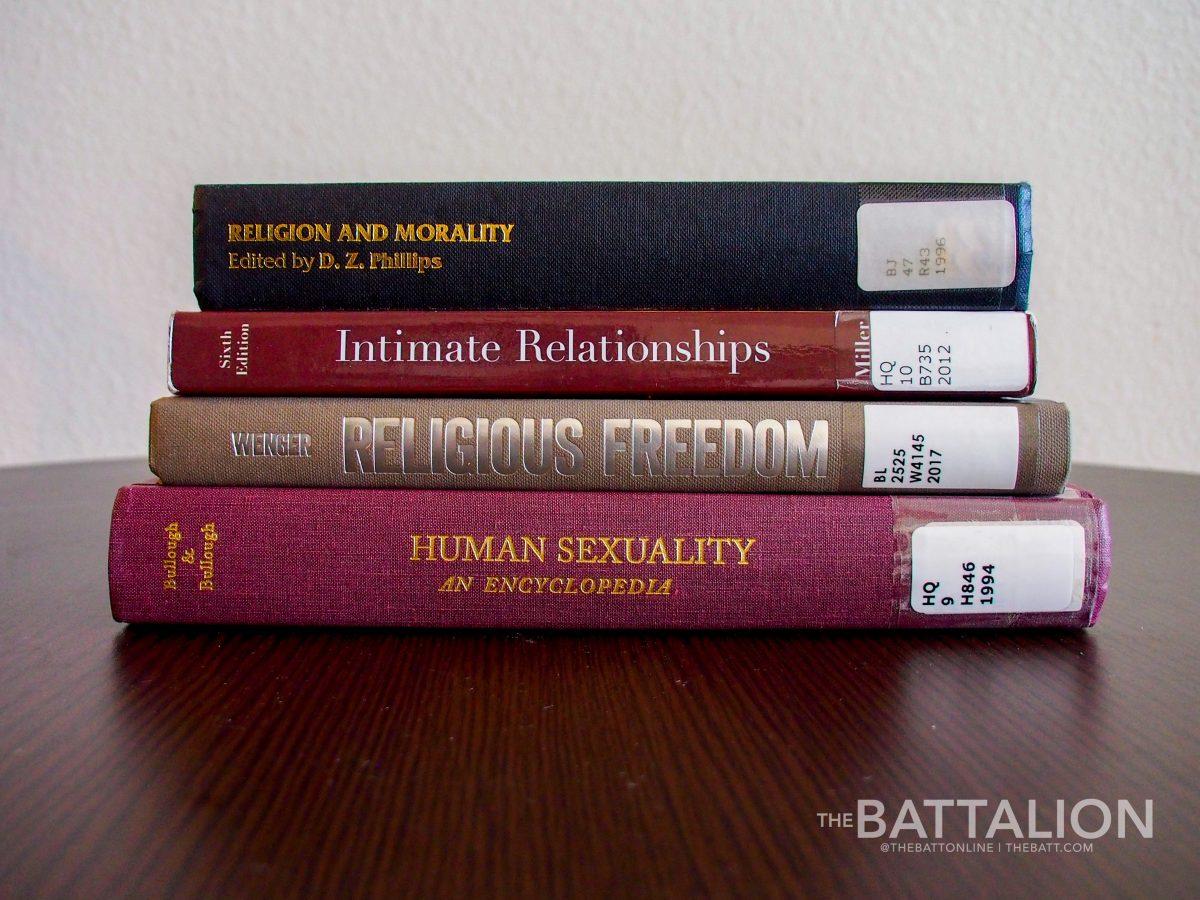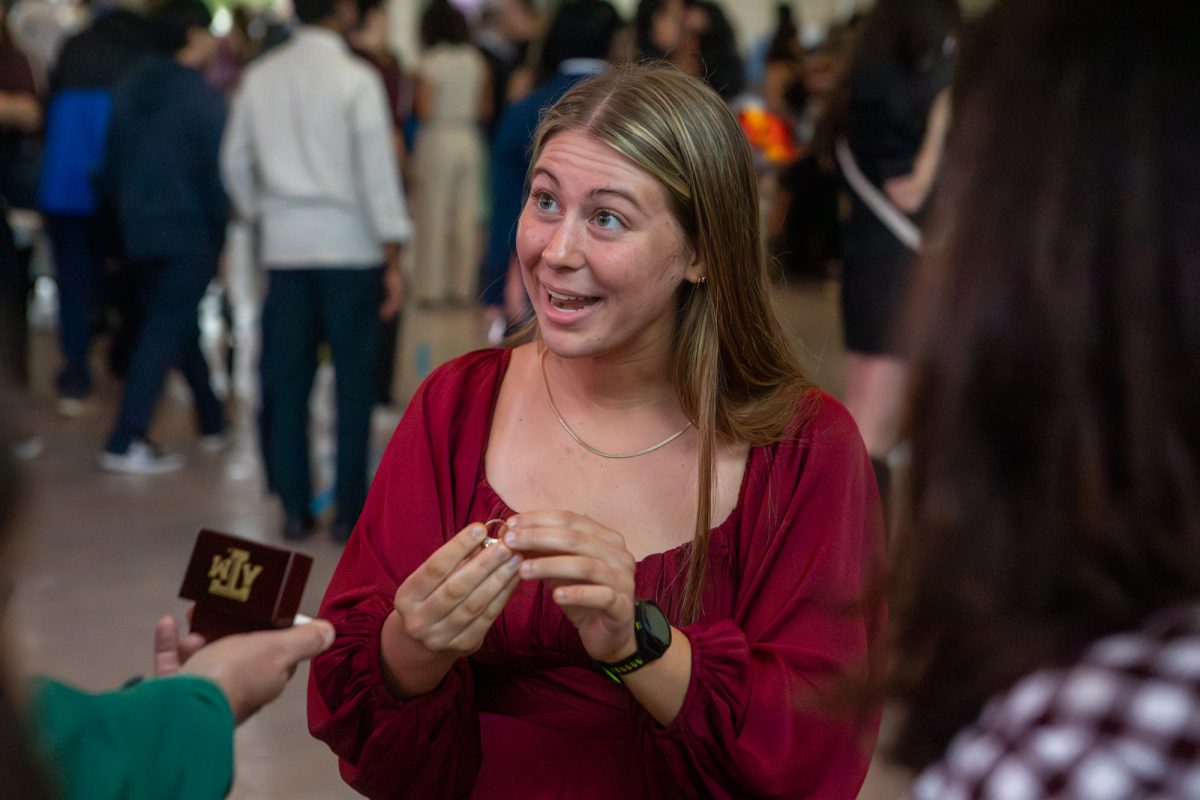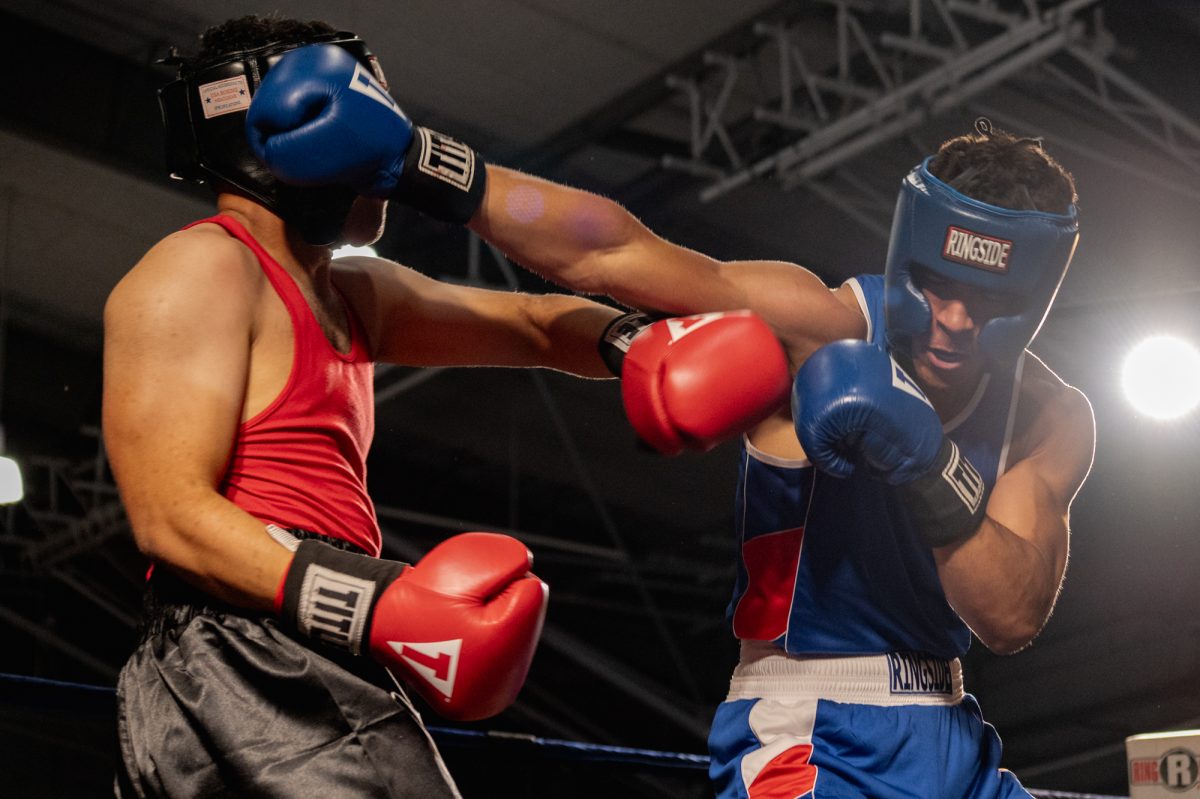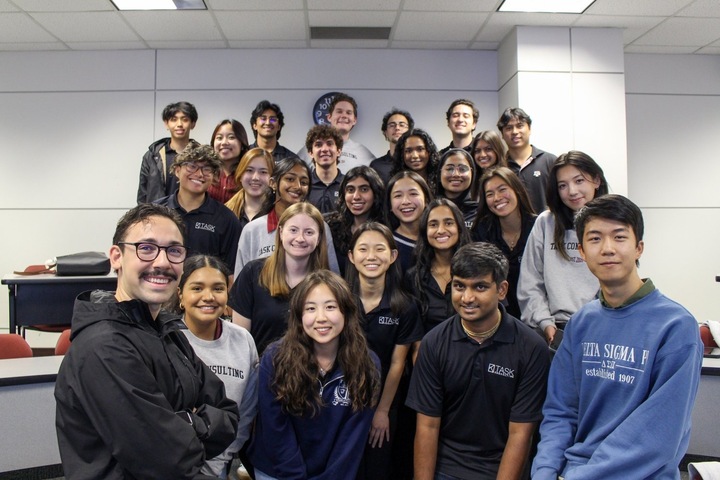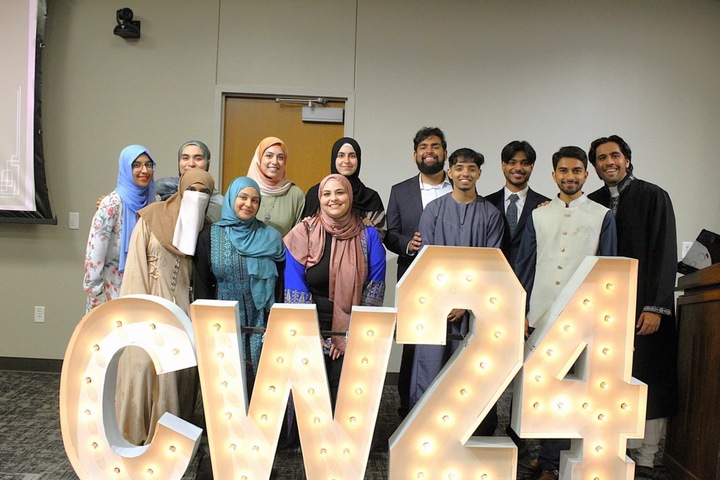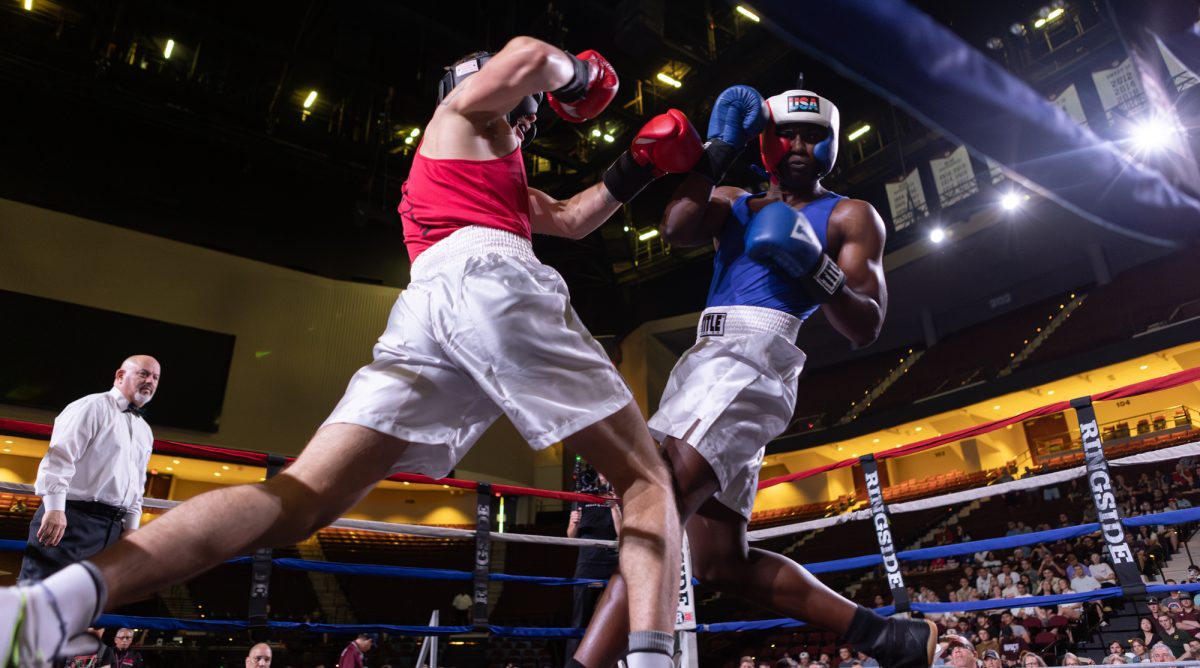With nearly 100 religious student organizations and ministries of all faiths across Bryan-College Station, Texas A&M has no shortage of students of faith. Despite this openness, college students continue to grapple with how their faith influences their sexual choices and activity.
As the campus minister of the Evangelical Lutheran Church of America for A&M, more commonly known as Treehouse Ministries, Pastor Jerry Wirtley said discussions surrounding sex within the Lutheran context are frequent among his congregation.
“The Biblical understanding of marriage is consummation,” Wirtley said. “So how does [sex outside of marriage] work, and how do we still understand that God knows us and loves us regardless? Some of that conversation is knowing that we’re still loved and we’re still good. It doesn’t mean that what we did was bad.”
Wirtley said, in addition to the modern-day implications, when it comes to the text of the Bible, it’s difficult to extract the full meaning of text from passages.
“The Bible talks a lot about sex, even when [we] think it’s not talking about sex,” Wirtley said. “There’s a lot of times in the Bible when it talks about someone knowing someone else, especially in the Old Testament. When it says, ‘a person knew a person,’ that carries a sexual connotation: an intimate connotation with it that we don’t think about or remember.”
Wirtley said he believes the choice for students to participate in sexual activity should be taken seriously, but ultimately it is their choice.
“I don’t believe God is going to look at you any differently if you have relationships here and now,” Wirtley said. “Know there are ways to protect yourself from some of these consequences, and take those precautions. Understand what could happen, and be ready to accept that. To me, that’s the hardest part of the conversation. It’s not about the religion or the shaming; it’s about [being] ready for the consequences that [may] come.”
Though many on-campus ministries are based in the Christian tradition, A&M is home to students of every world faith. For education junior Aminah Abodunrin, being Muslim has allowed her to acknowledge how differently each student takes their family and religious values into college, she said.
“Everybody’s different, their experiences are different, so based on how you were raised is how you take [beliefs] into being independent,” Abodunrin said. “You can see the value of [your beliefs] if you stick to it.”
Abodunrin said there was never any conversation about sex in her upbringing, but she feels it’s important for people to have those conversations, even if they choose to wait until marriage to have sex.
“Once you’re Islamically married, you can do whatever you want with your spouse, but you don’t get any sexual education until probably the night before you get married,” Abodunrin said. “There’s not really any sexual education, and I feel like that is really important with new generations coming up and a lot of us voicing our opinions. I feel that it’s very important for us to not just go into a marriage knowing nothing [about sex].”
Though she follows the Muslim practices of not engaging in premarital sex, Abodunrin said she feels personal choice is important for students.
“I feel like it’s to each their own,” Abodunrin said. “If people want to have sex or not, it’s really what you believe. I know what I follow, and I stick to the rules and regulations [of Islam], but if people want to go for that, then I support them.”
Chemical engineering junior “Annie,” a Muslim student who prefers to remain anonymous, said a large part of her upbringing in the Islamic faith was the separation of the sexes.
“I used to go to summer [Islamic] school a lot. I used to go during the week after school and then on the weekends,” Annie said. “There was never any talk about sex in Islam school. It was separated; it was boys on one side and girls on [another] side. There was never any mixing with boys and girls, especially if they’re really young. Even on the playground we don’t mix it all.”
Annie said the Islamic faith has a profound influence on her life, but especially in her views regarding sexual activity.
“I find [premarital sex] unacceptable,” Annie said. “I don’t like it. I believe it’s wrong. I’m seeing it as wrong because my religion says it’s wrong. Being a Muslim has a really big impact on my lifestyle, so I’m doing what my religion says to do — there’s no in-between for me.”
English senior “Carrie,” who also preferred to remain anonymous, describes herself as a non-denominational Christian. Carrie said before attending A&M, she did not have many conversations about how her faith aligned with sexual activity.
“[Sex] was something that was not talked about in my church, but my mother wanted me to be educated because she didn’t want unexpected pregnancies and things like that,” Carrie said. “It seemed very natural because she made it sound very natural.”
When enrolling in A&M, Carrie said she was quickly exposed to purity culture, which includes limiting dating, not partaking in sexual activity and praising those who remain virgins until marriage.
“I wasn’t exposed to purity culture until college and I went to Breakaway for the first time,” Carrie said. “They did talk about sex, and it was very taboo for me because sex and religion had never been a conjoined thing … When they talked about it, it was very shocking and jarring. They ended up talking about it in a way that really made me feel insecure,because I was a virgin, and that was very applauded for people to be virgins.”
Carrie said this sentiment of abstinence equating to holiness led to a lot of confusion, and she felt this approach may be a deterrent for those looking for a faith community.
“I just can’t imagine being someone who had never gone to church before or never even heard about it, and then went to that day [of service] to find out that you’re ‘wrong,’” Carrie said. “I don’t think that makes it a very welcoming experience, and that was my first experience with purity culture. I shut down [going to Breakaway] pretty quickly after that. It was a really bad experience.”
Additionally, Carrie said she sought out advice regarding having sex with her boyfriend of six months, but was surprised about the reaction she received.
“I asked my roommate about it, because I had never been exposed to purity culture,” Carrie said. “Two days later, she started spamming me with these sermons talking about [premarital sex]. The first one she sent me compared premarital sex to pedophilia. That made me feel really bad because it made me feel like I was wrong for even having the idea. It took me a really long time to get out of that headspace, it made me feel so guilty.”
Carrie said she feels religious students should make their own choices and believes sexual activity does not lessen someone’s devotion to their religion.
“Just follow your heart, and follow what you believe to be the best path for you,” Carrie said. “Because in the end, you can still be a good Christian and have premarital sex. Don’t let anyone bully you into believing what they think is right because you are your own person. You’re only here for so long; do not let anybody else decide what you should be doing.”
Religion, prayer, sex, oh my!
January 4, 2022
Photo by Photo by Hannah Shaffer
The conversation about sexual education should be had regardless of religious beliefs, as many students use college as a time to experiment sexually with partners.
0
Donate to The Battalion
$2065
$5000
Contributed
Our Goal
Your donation will support the student journalists of Texas A&M University - College Station. Your contribution will allow us to purchase equipment and cover our annual website hosting costs, in addition to paying freelance staffers for their work, travel costs for coverage and more!
More to Discover




